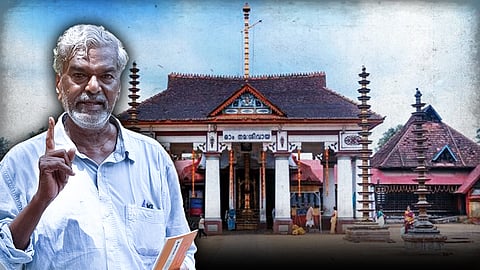Vaikom Award to Kannada writer and activist Devanoor Mahadeva is historic
The Vaikom Satyagraha (March 30, 1924 to November 23, 1925) in Kerala’s erstwhile Travancore Kingdom (present-day Kottayam district) was a significant mass struggle that raised the question of social equality during the Indian independence movement. In the 19th century itself, during the colonial period, anti-caste thinkers such as Jyotirao Phule in Maharashtra, Pandit Ayothee Thass in Tamil Nadu, and Ayyankali in Kerala, attempted to create social consciousness among marginalised communities by fighting against untouchability and caste-based inequality. This social awakening laid the foundation for various other forms of social movements.
In the name of preserving the temple’s ‘purity’, four major roads leading to the Sri Mahadeva Temple in Vaikom were closed to Dalits, and the marginalised Ezhava community. In 1924, Congress leaders of Vaikom launched a satyagraha against this untouchability which was being practiced in the garb of ‘madi-mailige’ (purity-pollution). As the struggle intensified, the government arrested and imprisoned the activists under pressure from the dominant castes. At this point, Periyar EV Ramasamy Naicker, the president of the Tamil Nadu Congress, came to Vaikom and took charge of the movement. This satyagraha, which lasted over 600 days, drew national attention due to MK Gandhi’s involvement. In the end, with Gandhi’s intervention, an agreement was reached: three of the four roads leading to the temple would be opened to the public, while one would remain closed.

